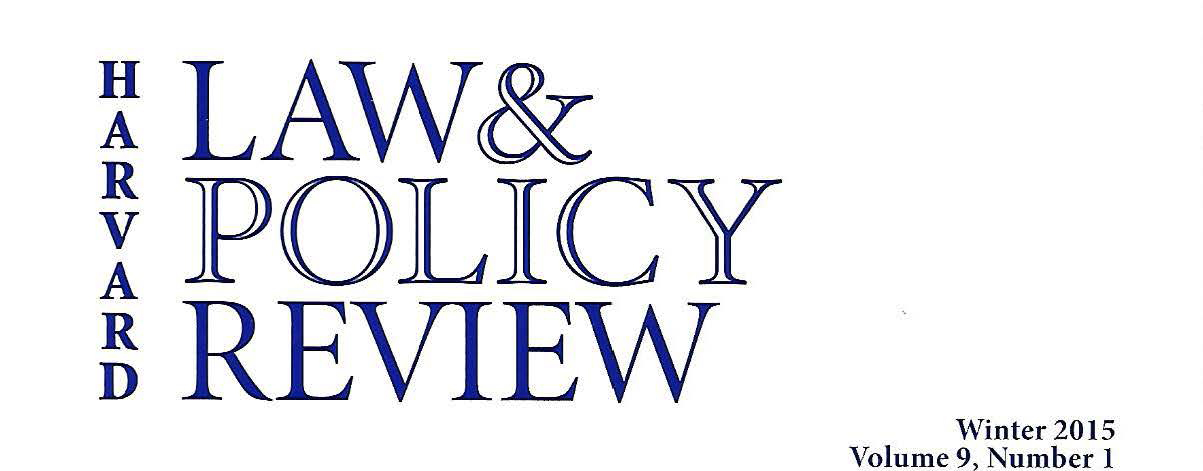
2014 Alumnus Published in Harvard Law & Policy Review
July 14, 2015
Alumnus Blaise Vanderhorst (’14) has just published an essay in the latest issue of the
Harvard Law & Policy Review
(Vol. 9, No. 1, 2015) entitled “
Whither Lies the Self: Intersex and Transgender Individuals and A Proposal for Brain-Based Legal Sex
.” The piece was initially drafted in Vanderhorst’s final semester at Fowler School of Law while a student in Professor Marisa Cianciarulo’s Gender and the Law course.
Fowler School of Law’s Associate Dean for Research and Faculty Development, Donald Kochan, praised this accomplishment as a reflection of the community of scholarship at Fowler Law, where not just faculty but also students and alumni work to advance our understanding of the law.
“At Fowler School of Law, we encourage our students who complete extremely impressive scholarly writing products (during seminars and certain other research courses) to thereafter improve those papers, even past the final grade, to the point where they might be considered for publication in an appropriate academic journal,” Dean Kochan said. “Profound congratulations are in order for Mr. Vanderhorst for undertaking that commitment and receiving such a prestigious placement for his work.”
Mr. Vanderhorst provides the following abstract for his essay:
“The growing visibility and mounting successes of the transgender and intersexed rights movements have required our nation’s legal system to address the question of sex. Who is male or female, when they are so, and when, if ever, a person previously recognized as one may be recognized as another, are questions of utmost importance to transgender and intersexed persons. Unfortunately, judges and legislators, unfamiliar with transgender or intersexed issues and generally lacking backgrounds in medicine and psychology, have all too often deferred to gender stereotypes, anatomic essentialism, and ‘thinly-veiled appeals to religious dogma,’ and in so doing have crafted definitions of sex which exclude many men and women from their identified gender. Other decisions and jurisdictions have imposed costly surgical requirements for recognition as the desired sex, again reducing identity to anatomy. Meanwhile, the lack of a uniform standard among U.S. jurisdictions leaves intersexed and transgender individuals in a state of legal uncertainty. This Article explores the history of intersexed and transgender individuals, surveying the cultures in which identity, not anatomy, have determined one’s social and legal status. It examines the inequities posed by current standards of legal sex and proposes in their stead a uniform standard of legal sex based on identity. By basing legal sex on gender identity, or ‘brain sex,’ we will eliminate the unfair standards of legal sex which insist, contrary to medical science, that sex is unambiguous and immutable, and limit the legal and financial barriers anatomical standards of sex impose upon gender-variant individuals.”
Read the full essay
.
Blaise Edward Vanderhorst is a graduate of the Chapman University Dale E. Fowler School of Law and the University of California, Santa Barbara. He is currently working at a law firm in Porterville, CA.
